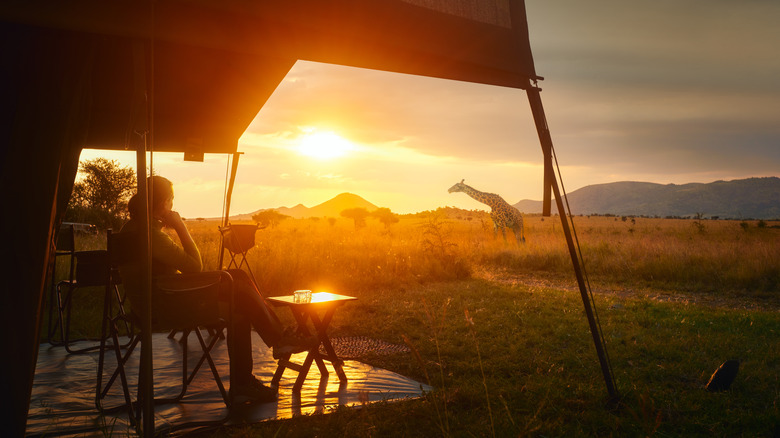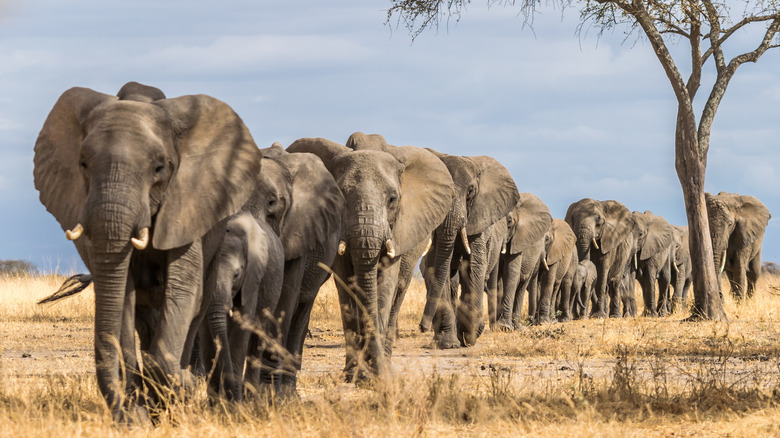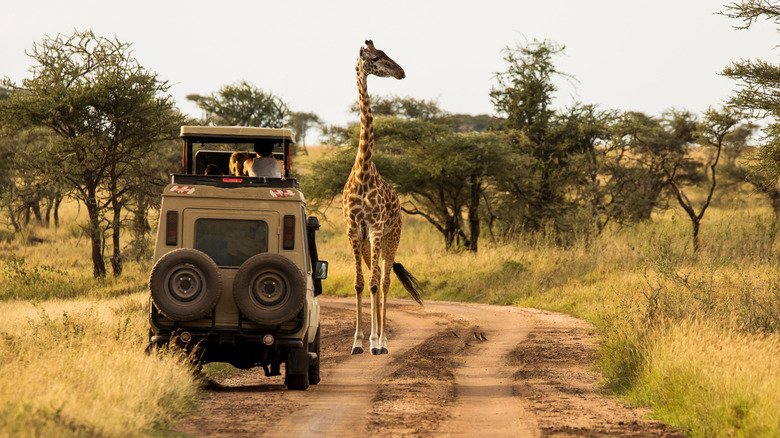Destinations Africa
Laura Jones
An African safari is a dream vacation for many people, and most know that it’s a trip that doesn’t come cheap. A safari is often a honeymoon splurge or vacation that people spend years saving for. And the industry is booming, with Grand View Research reporting that the safari market was worth over $30 billion globally in 2021 and is expected to grow steadily. But just how much do you need to go on safari? Can it be done on a budget?
The cost of your African safari will depend on a large number of factors: where you go, the type of accommodations you choose, and what season you go in. According to Safari Bookings, the cheapest way to go on a safari is to spend the night in a tent in Kenya or Zambia. Here, you’ll pay around $200 per night to sleep under canvas. The most expensive way to experience a safari is in luxury accommodations in Botswana, which will set you back around $1,625 per night. This is a huge price range, and deciding what will be best for you can make or break your trip.
An average safari budget

soft_light/Shutterstock
Travel blogger Kiki from The Blonde Abroad recommends spending around $1,000 per person per night on a safari. This might sound like a lot, but as Kiki notes, those $1,000 go a long way and should cover full-board accommodations, rangers and game drives, and conservation fees. And, Kiki states that two nights are often enough in these high-end places to enjoy a safari and go on four game drives, giving you ample time to see a wide range of animals.
ShermansTravel writes about the benefits of taking a higher-end safari too. One is of course that you’ll have better-quality accommodations. Another benefit is that you’ll do your game drives with fewer people –- usually between four and six guests in a 4×4 as compared to 11 or more with a more budget option. This means you’ll have better views and a quieter experience. Luxury options also provide well-trained guides and spotters who will ensure that you see as much as possible.
Low-budget safaris

hansen.matthew.d/Shutterstock
If there’s no way your budget will stretch to $1,000 or more per night, it doesn’t mean you’ll have to count yourself out of going on a safari completely. Go2Africa states that the most affordable countries to go on a safari are South Africa and Zambia, as here you can go on self-drive safaris and stay outside the parks in self-catering accommodations.
There are downsides to this approach though, namely that you likely won’t be in the parks at dawn and dusk – prime wildlife spotting times –- and you won’t be traveling with a trained spotter, so you might miss a lot of animals lurking just out of sight. Discover Africa suggests going in the off season to get the best prices. However, you’re less likely to see animals at these times.
One of the biggest considerations when choosing a lower-budget option should be the impact the park or camp has on the local environment. The Blonde Abroad writes that while more expensive safari packages tend to support conservation efforts, budget options might be more interested in making money than in ecology. If you’re choosing to save a little money, don’t do it at the expense of the animals you’ve come to see.

